Are mathmatical theories legit?
mathmatics vs. the alphabet
Moderators: kiore, Blip, The_Metatron
•
39 posts
• Page 1 of 2 • 1, 2
Are mathmatical theories legit?
if numbers have neither a beginning nor an ending then how can one say they truly exist, are they not merely concept and as such cannot "control" any real theory, now letters on the other hand are finite they have a beginning and an ending and as such would be more realistically used when contemplating theories? Sorry f this sounds choppy but its a new thing I am trying to grasp and decided today to get others perspective on it.
- Seattledru
- THREAD STARTER
- Name: Dru
- Posts: 3
- Country: United States

Re: Are mathmatical theroies legit?
Seattledru wrote:if numbers have neither a beginning nor an ending then how can one say they truly exist, are they not merely concept and as such cannot "control" any real theory, now letters on the other hand are finite they have a beginning and an ending and as such would be more realistically used when contemplating theories? Sorry f this sounds choppy but its a new thing I am trying to grasp and decided today to get others perspective on it.
I'd advise just letting it go and moving onto something more productive. While there is some interesting philosophical debate about the status of mathematics, this isn't going to contribute anything to it.
If I ever start making posts like "On the banning and partial banning of words!" then I view my life as less than worthless and I hope that my friends here would have a collection to pay for ninjas to be sent to my home to kill me*. (*=humanely)
-
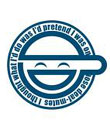
Paul Almond - Name: Paul Almond
- Posts: 1541

- Country: United Kingdom

Re: Are mathmatical theroies legit?
Why so, it is a legitimate question. But thanks for riding in here on your high horse and bringing the negative attitude towards someone with genuine curiosity.
- Seattledru
- THREAD STARTER
- Name: Dru
- Posts: 3
- Country: United States

Re: Are mathmatical theroies legit?
Seattledru wrote:Why so, it is a legitimate question. But thanks for riding in here on your high horse and bringing the negative attitude towards someone with genuine curiosity.
Maths is clearly illegitmate and people should be put to death when caught practicing it!
Serious answer:-
My favourite example is the Hardy-Weinburg equilibrium for allele probabilities. The thing is, this equation is total woo. It's horseshit! It does not even pretend to reality in any way. But extremely useful. Let's look at H-W:-
1. It assumes infinite size populations [total bollocks!]
2. It assumes no genetic drift [also total bollocks!]
3. It assumes no natural selection [yet more total bollocks!]
There are different versions of this model, but the two allele [an allele is a version of a gene] single locus [single location]. The model is perfection itself, and most unreal.
It use comes from how real populations differ from Hardy-Weinburg ratios. Statistically significant departures from the H-W tells you that something is probably happening. Very large populations should look roughly like H-W infinite populations, and any differences are probably due to natural selection and drift. {NSD}. Further tests can often tweak out the difference between drift and NS.
Very small populations don't usually look very H-W like, due to sampling errors. [The founder effect on Islands is an example]
http://en.wikipedia.org/wiki/Hardy%E2%8 ... _principle
http://en.wikipedia.org/wiki/Founder_effect
Models don't always have to be "real" to be useful. They are conceptual tools, and like all tools can be used properly or not.
Jayjay4547 wrote:
"When an animal carries a “branch” around as a defensive weapon, that branch is under natural selection".
"When an animal carries a “branch” around as a defensive weapon, that branch is under natural selection".
- Darwinsbulldog
- Posts: 7440
- Age: 69
Re: Are mathmatical theroies legit?
The concept of number exists. I have a certain amount of cash in my wallet. Could I have an infinite amount of cash? NO. So I can have a sub-set of the infinity of numbers. Sure numbers are a human invention, but they have a concrete representation in the real world. Think three oranges. Got the picture? How does infinity denigrate my having limited cash, or three oranges?Seattledru wrote:if numbers have neither a beginning nor an ending then how can one say they truly exist, are they not merely concept and as such cannot "control" any real theory, now letters on the other hand are finite they have a beginning and an ending and as such would be more realistically used when contemplating theories? Sorry f this sounds choppy but its a new thing I am trying to grasp and decided today to get others perspective on it.
________________________________________________
I'm another godless atheist for peace and world harmony.
Oh, to dream, the impossible dream.
Aaah!
________________________________________________
I'm another godless atheist for peace and world harmony.
Oh, to dream, the impossible dream.
Aaah!
________________________________________________
-

Gila Guerilla - Posts: 104
- Age: 72


Re: Are mathmatical theroies legit?
An infinite series of natural numbers means we can have more than 26 of anything! 
OFFICIAL MEMBER: QUANTUM CONSTRUCTOR CONSCIOUSNESS QUALIA KOALA COLLECTIVE.
-
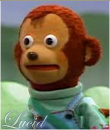
LucidFlight - RS Donator
- Name: Kento
- Posts: 10805

- Country: UK/US/AU/SG

Re: Are mathmatical theroies legit?
Gila Guerilla wrote:The concept of number exists. I have a certain amount of cash in my wallet. Could I have an infinite amount of cash? NO. So I can have a sub-set of the infinity of numbers. Sure numbers are a human invention, but they have a concrete representation in the real world. Think three oranges. Got the picture? How does infinity denigrate my having limited cash, or three oranges?Seattledru wrote:if numbers have neither a beginning nor an ending then how can one say they truly exist, are they not merely concept and as such cannot "control" any real theory, now letters on the other hand are finite they have a beginning and an ending and as such would be more realistically used when contemplating theories? Sorry f this sounds choppy but its a new thing I am trying to grasp and decided today to get others perspective on it.
You can also slice those oranges into smaller and smaller bits, thus approaching infinity (the universe would probably end before you ran out of bits to make smaller).
Using letters instead of numbers would amount to essentially the same thing, yea? You have to create a base system (from which you can count), so if you were to use English letters and say that you had a base of those 26 letters (sub question: how do you define 26 letters without numbers?), so you would count A B C ... X Y Z, and then what do you do? A (A B C ... X Y Z) to represent one more than Z?
You would probably be interested in this book. It deals with a lot of the philosophy behind mathematics and the proofs involved. The first chapter deals with number theory. If you are inexperienced with logic be prepared to do a lot of re-reading and reading out loud to figure this book out. I know I did, and I thought I had a good grasp on logic from growing up writing computer programs. You may also be interested in reading this book, philosophy and the connections between math, music and art.
-
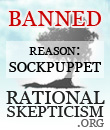
Skyforger - Banned Sockpuppet
- Posts: 62
Re: Are mathmatical theroies legit?
I knows Maffs is legit bekause Da Count from Sesame Street endores it, so there!
Jayjay4547 wrote:
"When an animal carries a “branch” around as a defensive weapon, that branch is under natural selection".
"When an animal carries a “branch” around as a defensive weapon, that branch is under natural selection".
- Darwinsbulldog
- Posts: 7440
- Age: 69
Re: Are mathmatical theroies legit?
Seattledru wrote:if numbers have neither a beginning nor an ending then how can one say they truly exist, are they not merely concept and as such cannot "control" any real theory, now letters on the other hand are finite they have a beginning and an ending and as such would be more realistically used when contemplating theories? Sorry f this sounds choppy but its a new thing I am trying to grasp and decided today to get others perspective on it.
Allow me to step in here.
Put three apples on the table in front of you. You now have a concrete instantiation of the abstract concept known as 'three'.
Put three oranges on the table in a neat row in front of the apples. You now have another concrete instantiation of that abstract concept.
Now do the same with three bananas. Follow that with a row of three lemons. Once again, you have concrete instantiations of that abstract concept.
Now, it might be more difficult to provide a concrete instantiation of one of the related abstract concepts, say, for example, I ask you to put a billion apples on your table, but in principle, this can be done. You'll end up with a nice mountain of apples on your table if you succeed.
Numbers were originally invented to provide a precise answer to the question "how much?". Such as "how much wheat do I need to grow to feed myself and my family this year?" "How many cows do I need to keep in order to keep myself and my family supplied with milk?" "How much land do I need to maintain those cows?" These are all questions that have taxed the minds of humans right at the dawn of civilisation, and concentrated those minds wonderfully because failure to arrive at the right answer could result in famine, starvation and death. As a direct corollary of this, humans worked out fairly quickly, that they needed to develop some sort of understanding of the behaviour of numbers, so that they could alight upon answers to these questions that didn't result in famine, starvation and death. Learning how numbers behaved possessed a lot of utility value, even back in an age when the wheel constituted cutting edge technology.
Later on, when we learned how to use numbers in order to provide something akin to a successful answer to those questions, the questions changed. The questions that arose later were questions such as "How do I know I'm getting a fair deal, if I exchange this much of my hard-grown wheat for these goats?" Numbers allowed us to arrive at satisfactory answers that everyone could agree upon.
Now, in order to develop an even better understanding of numbers, some humans then started asking a very important question. Namely, what sort of relationships apply to numbers. Because understanding this, would allow even better answers to be forthcoming to pressing questions that involved those numbers. Thus was born mathematics.
Mathematics, at bottom, is the business of determining precise relationships, analysing those relationships, and determining what predictions about potential new (and useful) relationships can be made from the existing base of knowledge. It so happens that numbers were the first entities to which this process was applied, and numbers remained a major subject of study for several thousand years. However, modern mathematics casts the net wider, and embraces concepts such as sets, which, in the most general case, don't have to be quantified in order to be understood. Modern mathematics embraces a whole array of what are known as formal axiomatic systems, which are erected in order to understand the relationships extant between the base entities of those systems. But, mathematics goes even further: it asks the question "what relationships exist between these formal systems?", and strives to determine whether or not those formal systems possess features suggesting that they are in turn instances of something even more all-encompassing.
At this point, certain technical concepts arise, such as isomorphism. An isomorphism, from an informal standpoint, can be thought of as a relationship between two different formal systems, that preserves structural features when moving from one to the other. If such relationships exist, then this tells us something important about those two formal systems, namely, that we can perform manipulations in one, and transplant those manipulations to the other, via that isomorphism, provided that certain conditions are satisfied of course. To state that two structures are isomorphic, is to state that in a very precisely defined manner, that those two structures enjoy a special species of equivalence, allowing both to be used to model relevant systems of entities and interactions interchangeably.
Then, within each formal system, you have homomorphisms, which are relationships between instances of a particular formal structure, indicating that the instances in question share key structural features, and again, allowing migration of information about one instance to the other instance.
If you want to enter particularly rarefied space, it is possible to talk about categories, which has a precise definition in mathematics. The idea behind categories, is that a given set of entities and its associated relationships, is itself capable of being abstracted further, and treated as an instance of more generalised entities and interactions, which themselves admit of rules of behaviour and analysis.
So, our asking those questions about growing wheat and keeping cows at the dawn of civilisation led to something very special indeed.
Incidentally, you have it backwards in your above opening post. Numbers don't 'control' a theory, it's the relationships extant between numbers that do this. The numbers themselves are passive entities in all this. Allow me to demonstrate an example. I shall erect a postulate, and then prove that said postulate is false. The postulate in question is this:
Postulate: there exists a largest prime number.
Now, how is the concept of prime number defined? It's defined in terms of its relationships with other numbers. Specifically, the concept of 'prime number' is defined in terms of its relationships with other numbers through the division operation. if we define ed(a,b) to mean "a can be divided exactly by b' then, for example, ed(8,2) is true (8 ÷ 2 = 4), whilst ed(9,2) is false ( 9 ÷ 2 = 4.5). A number p is prime, if the ONLY true instances of ed(p,x) are ed(p,1) and ed(p,p).
Now, the above postulate proposes that there exists a special prime, let's call it pmax, such that NO number larger than pmax is prime. I propose to demonstrate that this is false, as follows.
Let us construct the number Q, as follows:
Q = [2 × 3 × 5 × 7 × 11 × 13 × ... × pmax] + 1
In short, multiply together ALL the prime numbers up to and including pmax, then add 1 to the result.
What can we deduce about Q?
Well, we can deduce the following:
[1] Q > pmax.
[2] ed(Q,2) is false. Q is not divisible by 2, because Q is of the form 2n+1, where n is some integer.
[3] ed(Q,3) is false. Q is not divisible by 3, because Q is of the form 3n+1, where n is some integer.
[4] ed(Q,5) is false. Q is not divisble by 5, because Q is of the form 5n+1, where n is some integer.
[5] ed(Q,7) is false. Q is not divisible by 7, because Q is of the form 7n+1, where n is some integer.
[6] ed(Q,11) is false. Q is not divisible by 11, because Q is of the form 11n+1, where n is some integer.
Similarly, we can erect like statements about Q for ALL the primes up to pmax, terminating with:
ed(Q, pmax) is false. Q is not divisible by pmax, because Q is of the form pmaxn+1, where n is some integer.
This means that the only true instances of ed(Q,x) are ed(Q,1) and ed(Q,Q).
But this is the definition of a prime number, as we started with above. Which means that Q is a prime number.
But as we noted at the start, Q > pmax, our hypothetical 'maximum' prime number. Therefore pmax is not the maximum prime number, which contradicts our initial hypothesis. This applies whatever value we choose for our proposed pmax - we can always construct a larger prime number than pmax, as shown above.
Therefore the initial postulate, that there exists a maximum prime number, is false.
Therefore, there are an infinite number of prime numbers. A conclusion I arrived at on the basis of the properties of finite numbers.
I think the assertion in your opening post, that numbers somehow possess no utility value in theorem proving, just because there happens to be an infinity thereof, is thus refuted.
Signature temporarily on hold until I can find a reliable image host ...
-

Calilasseia - RS Donator
- Posts: 22628
- Age: 62

- Country: England

Re: Are mathmatical theroies legit?
The Universe has properties. Mathematics is the understanding and the language of these properties. This is also the true marvel of science - that we can know the nature of reality in such a true and fundamental fashion.
Thus, for example, it (mathematics), was used as the language medium of the information sent off into interstellar space with Voyager. Our sole means of communicating with all beings with any sort of knowledge of our shared, universal nature. The language of reality.
Thus, for example, it (mathematics), was used as the language medium of the information sent off into interstellar space with Voyager. Our sole means of communicating with all beings with any sort of knowledge of our shared, universal nature. The language of reality.
Last edited by hoopy frood on Nov 29, 2011 6:57 am, edited 1 time in total.
I don’t think we’re for anything, we’re just products of evolution. You can say “Gee, your life must be pretty bleak if you don’t think there’s a purpose,” but I’m anticipating a good lunch.
Theology: The study of elaborate verbal disguises for non-ideas
Theology: The study of elaborate verbal disguises for non-ideas
-

hoopy frood - Posts: 1519


Re: Are mathmatical theroies legit?
[youtube]http://www.youtube.com/watch?v=hkJFS2owZuA[/youtube]

I don’t think we’re for anything, we’re just products of evolution. You can say “Gee, your life must be pretty bleak if you don’t think there’s a purpose,” but I’m anticipating a good lunch.
Theology: The study of elaborate verbal disguises for non-ideas
Theology: The study of elaborate verbal disguises for non-ideas
-

hoopy frood - Posts: 1519


Re: Are mathmatical theroies legit?
Numbers enable science, engineering and medecine. That's enough justification to study mathematics for me.
A soul in tension that's learning to fly
Condition grounded but determined to try
Can't keep my eyes from the circling skies
Tongue-tied and twisted just an earthbound misfit, I
Condition grounded but determined to try
Can't keep my eyes from the circling skies
Tongue-tied and twisted just an earthbound misfit, I
-
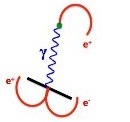
twistor59 - RS Donator
- Posts: 4966


Re: Are mathmatical theroies legit?
OP, you should read a little bit more about what mathematics is. At the most basic level is a game of sorts. you have these lego pieces and various rules for arranging them. mathematics is the exercise in arranging these lego pieces in all sorts of different ways while sticking to the rules. The trick is that lego pieces and arrangement rules can be anything you can think of, as long as they are not contradictions in there.
Maths become useful in science or other fields when we realize that some of the lego pieces vaguely represent something we think is real. then we can take lego arrangements and import them wholesale to show how reality maybe structured.
Of course the truth is bit more complicated but this should get you started.
Maths become useful in science or other fields when we realize that some of the lego pieces vaguely represent something we think is real. then we can take lego arrangements and import them wholesale to show how reality maybe structured.
Of course the truth is bit more complicated but this should get you started.
-

Mononoke - Posts: 3833
- Age: 37


Re: Are mathmatical theroies legit?
Seattledru wrote:if numbers have neither a beginning nor an ending then how can one say they truly exist, are they not merely concept and as such cannot "control" any real theory, now letters on the other hand are finite they have a beginning and an ending and as such would be more realistically used when contemplating theories? Sorry f this sounds choppy but its a new thing I am trying to grasp and decided today to get others perspective on it.
I'm going to have a go at this, too.
First, the topic title:
"Are mathmatical theroies legit?"
To which I would answer: More legitimate than the words "mathmatical", and "theroies", both misspelled.
Secondly, you are conflating the characters used to represent words with the words themselves when you say letters are finite. Indeed, the letters of an alphabet are finite, as are the digits we use to represent numbers. But, you are freely allowing any number to exist, while denying an infinite combination of words with a similarly finite character set to represent them as the Arabic numerals are used to represent any number.
For example, there have been some finite number of words written since the dawn of writing and the moment you read this post. Yet, here's a perfectly new sequence that until this moment, never existed: "The rhino chicken soldered the copper pipes in his bathroom to his nose with an ice cream scoop."
Words are not finite, because of the combinations they can be used. No different from any number. Just a particular combination of digits.
-

The_Metatron - Moderator
- Name: Jesse
- Posts: 22534
- Age: 61

- Country: United States

Re: Are mathmatical theroies legit?
The_Metatron wrote:Seattledru wrote:if numbers have neither a beginning nor an ending then how can one say they truly exist, are they not merely concept and as such cannot "control" any real theory, now letters on the other hand are finite they have a beginning and an ending and as such would be more realistically used when contemplating theories? Sorry f this sounds choppy but its a new thing I am trying to grasp and decided today to get others perspective on it.
I'm going to have a go at this, too.
First, the topic title:
"Are mathmatical theroies legit?"
To which I would answer: More legitimate than the words "mathmatical", and "theroies", both misspelled.
Secondly, you are conflating the characters used to represent words with the words themselves when you say letters are finite. Indeed, the letters of an alphabet are finite, as are the digits we use to represent numbers. But, you are freely allowing any number to exist, while denying an infinite combination of words with a similarly finite character set to represent them as the Arabic numerals are used to represent any number.
For example, there have been some finite number of words written since the dawn of writing and the moment you read this post. Yet, here's a perfectly new sequence that until this moment, never existed: "The rhino chicken soldered the copper pipes in his bathroom to his nose with an ice cream scoop."
Words are not finite, because of the combinations they can be used. No different from any number. Just a particular combination of digits.
Misspellings are a good way to see someones approach to a subject, if they point them out then that shows certain arrogance that pretty much say 'ignore whatever else they say" rather to see a newbies interest in the subject themselves, then to ignore the fact I was focused on letters, not words the alphabet a-z 26 letters no more no less rather than words which we all know to be infinite, Geez.
- Seattledru
- THREAD STARTER
- Name: Dru
- Posts: 3
- Country: United States

Re: Are mathmatical theroies legit?
Seattledru wrote:if numbers have neither a beginning nor an ending then how can one say they truly exist, are they not merely concept and as such cannot "control" any real theory, now letters on the other hand are finite they have a beginning and an ending and as such would be more realistically used when contemplating theories? Sorry f this sounds choppy but its a new thing I am trying to grasp and decided today to get others perspective on it.
What's the problem with numbers being conceptual? Surely that's a benefit. Maths is a self-consistent system that can be scaled to as much detail as required to model any known 'real world' phenomenon.
Extraordinary claims require ordinary evidence.
-
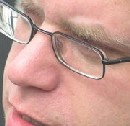
Jehannum - Name: Peter
- Posts: 252
- Age: 53

- Country: England
Re: Are mathmatical theroies legit?
Seattledru wrote:Misspellings are a good way to see someones approach to a subject, if they point them out then that shows certain arrogance that pretty much say 'ignore whatever else they say" rather to see a newbies interest in the subject themselves, then to ignore the fact I was focused on letters, not words the alphabet a-z 26 letters no more no less rather than words which we all know to be infinite, Geez.
So you didn't bother reading my post above, where I provided a direct example of a mathematical proof, requiring no knowledge other than an elementary understanding of multiplication and division of finite numbers, yet which tells us that there exist an infinite number of prime numbers? Thank you for wasting my time and effort educating you.
Signature temporarily on hold until I can find a reliable image host ...
-

Calilasseia - RS Donator
- Posts: 22628
- Age: 62

- Country: England

Re: Are mathmatical theroies legit?
@ Cali: tl;dr , but then I agree with you. 
Jayjay4547 wrote:
"When an animal carries a “branch” around as a defensive weapon, that branch is under natural selection".
"When an animal carries a “branch” around as a defensive weapon, that branch is under natural selection".
- Darwinsbulldog
- Posts: 7440
- Age: 69
Re: Are mathmatical theroies legit?
The only purpose this thread will serve is to demonstrate how remarkably prescient is Paul Almond.Calilasseia wrote:So you didn't bother reading my post above, where I provided a direct example of a mathematical proof, requiring no knowledge other than an elementary understanding of multiplication and division of finite numbers, yet which tells us that there exist an infinite number of prime numbers? Thank you for wasting my time and effort educating you.
Here we go again. First, we discover recursion.
- VazScep
- Posts: 4590

39 posts
• Page 1 of 2 • 1, 2
Who is online
Users viewing this topic: No registered users and 1 guest